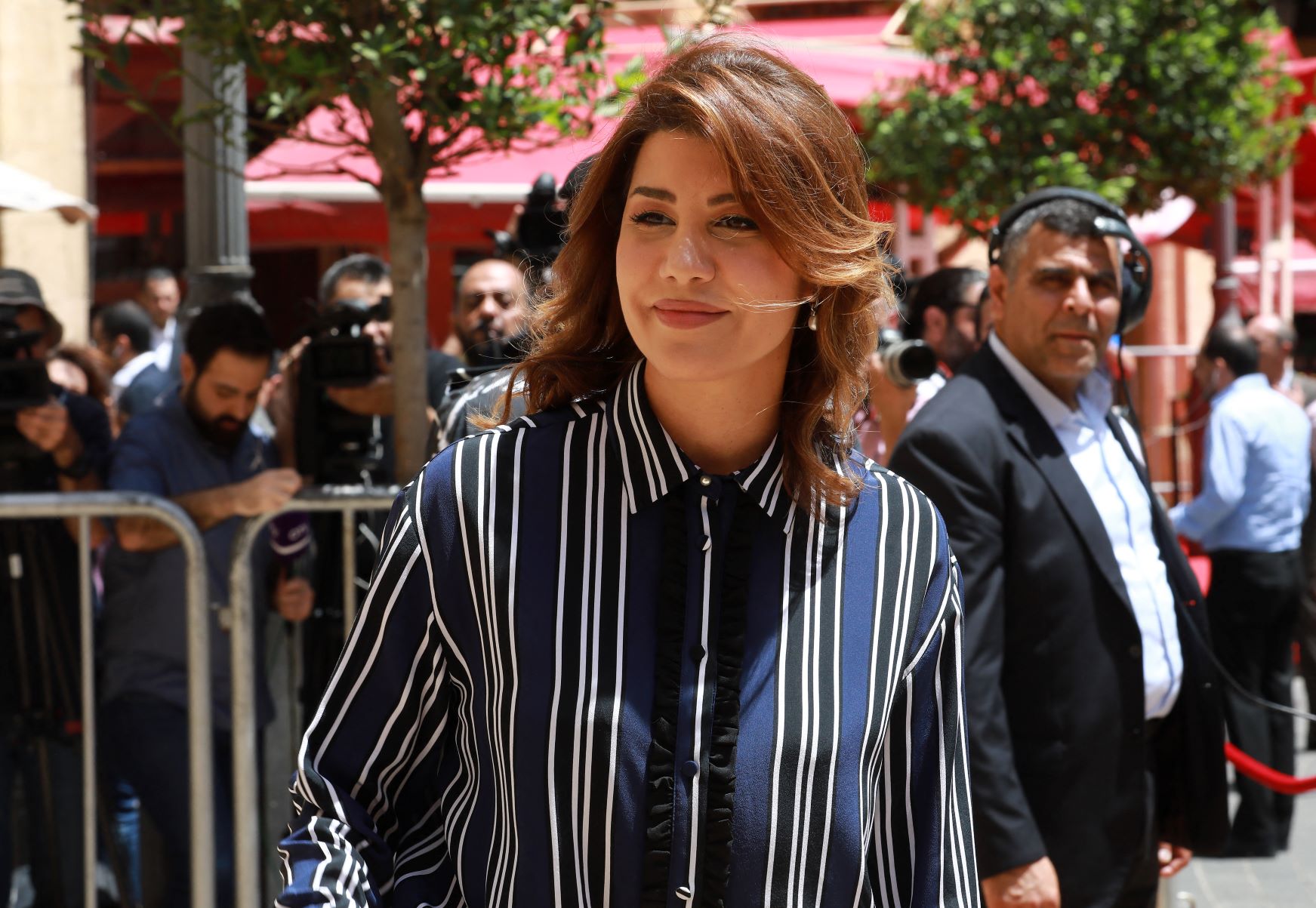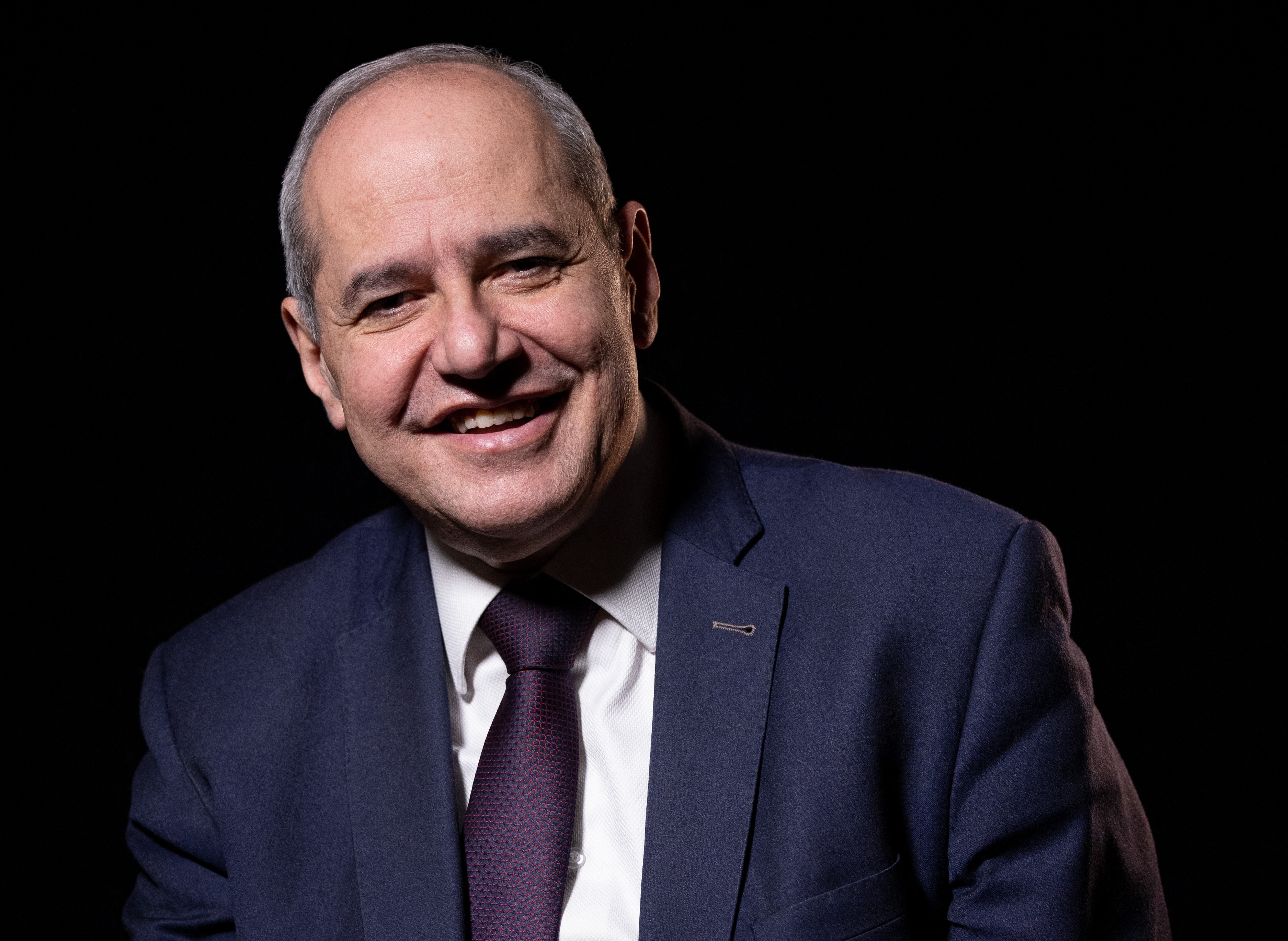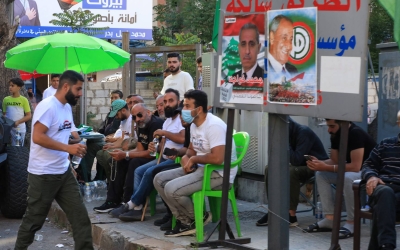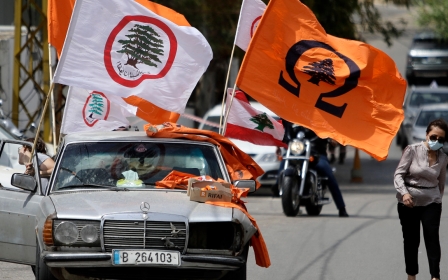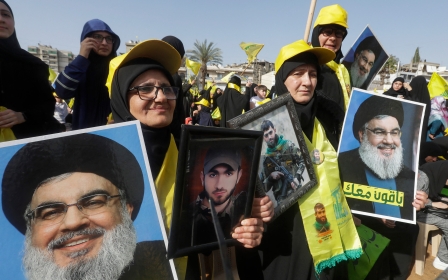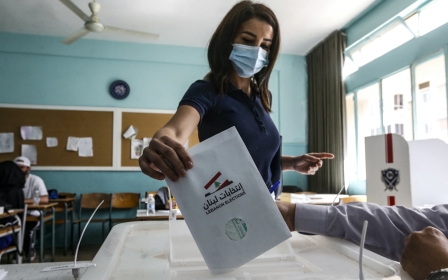Who are the independent candidates who won seats in Lebanon's parliament?
Sunday's elections in Lebanon, as expected, saw the parliament once again stuffed largely with politicians from the established parties that have ruled the country since the end of the civil war in 1990.
However, a number of independent and avowedly anti-establishment groups managed to break through, winning a record-breaking 13 seats.
Middle East Eye takes a look at some of the politicians hoping to shake up the Lebanese political establishment, as their country continues to suffer from an economic crisis and rampant corruption among the traditional parties.
Paula Yacoubian
Journalist-turned-lawmaker Paula Yacoubian, the only independent candidate to capture a parliamentary seat in 2018, has returned to parliament. The 46-year-old Lebanese-Armenian was among the eight MPs who resigned from parliament following the Beirut port blast in August 2020, protesting the lack of response and accountability for the man-made catastrophe, which killed over 200 people.
New MEE newsletter: Jerusalem Dispatch
Sign up to get the latest insights and analysis on Israel-Palestine, alongside Turkey Unpacked and other MEE newsletters
Yacoubian spearheaded the Tahalof Watani (National Coalition) opposition list in Beirut I (East Beirut).
She has been considered something of a controversial figure in some quarters, after a number of activists labelled her a sympathiser of former Prime Minister Saad Hariri, due to her former role as a journalist on his Future TV channel.
During her time in parliament, Yacoubian, a fierce advocate of a gender quota in politics, has proposed or backed 63 laws including amendments to the domestic violence law, independence of the judiciary law and transparency law.
Cynthia Zarazir
Born in 1982, Cynthia Zarazir, an audio-visual expert, has won the Minorities seat in Beirut I after campaigning on Paula Yacoubian’s Tahalof Watani list. Zarazir was heavily involved in the 2019 anti-government movement and has been a political activist since the 1990s, participating in protests against Syria's occupation of the country, during which she was repeatedly arrested.
According to Fiftyfifty, a Lebanese organisation fighting for a wider political representation for women, Zarazir founded the Human Rights Club at the American University of Technology and focused on the issue of Lebanese detainees in Syrian prisons and those who went missing during the 1975-1990 civil war.
She has provoked criticism, however, for her opposition to the presence of Syrian refugees in Lebanon. In a tweet in 2016 she called for a "genocide" to be enacted against Syrians in Lebanon.
Ibrahim Mneimneh
A 46-year-old architect and urban designer, Mneimneh was hoisted on to his supporters’ shoulders on Sunday evening as they chanted “Beirut resists, and does not bargain” in celebration of his election win.
This is not the first time Mneimneh has run for office. His political activism – which started in 2015 during a waste and refuse crisis that saw a series of protests – sowed the seeds for his candidacy in the 2018 parliamentary elections, though he was unsuccessful that time round.
He ran again for office this year with Beirut Tuqawem (Beirut Resists), a progressive electoral campaign, and with Beirut al-Taghyir (Beirut the Change), one of the two opposition lists in Beirut’s second constituency.
His electoral programme includes holding the political establishment accountable for the Beirut port blast of 2020, ending political clientelism, eradicating Lebanon’s sectarian governmental framework and replacing it with a “secular, democratic and just system”.
Waddah Sadek
The founder of Khat Ahmar (Red Line), a political organisation demanding the independence and reform of the judiciary, Waddah Sadek ran with the Beirut the Change list for a Sunni seat in Beirut II.
The 54-year-old newcomer grew up in the neighbourhood of Tareeq al-Jdideh in the capital and earned a Business degree from the Lebanese American University (LAU).
He also worked as a TV sports host for Al Jadeed and Future TV. His website also mentions that Sadek worked on the electoral campaigns of assassinated former Prime Minister Rafic Hariri and his son Saad Hariri, in addition to other Arab political figures.
Sadek won a seat in parliament despite being regarded as a controversial candidate by some liberal activists for not having a clear stance on the issues of civil marriage and LGBTQ rights.
Melhem Khalaf
Melhem Khalaf first appeared on the political scene in November 2019, one month after the October uprising, when he won the Beirut Bar Association elections, running as an independent candidate with no political backing.
During his term as head of the Beirut Bar Association, he provided legal representation for prisoners who had none, and secured pardons and the release of other inmates who failed to pay fines.
A university professor and lawyer, Khalaf is also a philanthropist. He was a former volunteer with the Lebanese Red Cross medic team during the civil war, and in 1985 he founded Offrejoie, an apolitical and non-sectarian NGO that helped people affected by the 2020 Beirut blast.
Khalaf ran with the Beirut al-Taghyir (Beirut the Change) opposition list in Beirut II for the Greek-Orthodox seat.
He has suffered a backlash over his refusal to state whether he would support Nabih Berri, the speaker of parliament - who has been in power for three decades and is part of the widely frowned-upon political establishment - to take up his role again.
Mark Daou
Running for parliament for the second time in a row in the Aley district, Marc Daou was able to win the Druze seat from Talal Arslan, a key ally of Hezbollah and the Syrian government.
Daou’s victory was dubbed “historic” by supporters for his defeat of Arslan, who has held office since 1991, except for the 2005-09 term when he was appointed as a minister instead.
'Ladies and lads, the warlords stole from you your education, your dreams, your innovation'
- Najat Aoun Saliba MP
Daou, a political, social and environmental activist and an instructor at the American University of Beirut, is also a member of Taqaddom, the democratic progressive political party, and he openly partook in the 2019 anti-government demonstrations.
He ran as a parliamentary candidate with the United for Change electoral list, and focused on various initiatives, including recovering people’s lost life savings from the banks.
Najat Aoun Saliba
Najat Aoun Saliba is the second member of the Taqaddom party and candidate on the United for Change list to enter parliament - winning a Maronite seat in the Chouf district. Aoun is a professor of analytical chemistry at the American University of Beirut and was previously the director of the university’s Nature Conservation Centre.
Winner of the 2019 L'Oreal-Unesco for Women in Science award, Saliba is known for her unswerving commitment to addressing environmental challenges, particularly air pollution.
She is also the co-founder and executive director of Khaddit Beirut – a grassroots initiative applying sustainable economic and health solutions – and the director and founder of the Environment Academy (EA), an initiative sponsored by the World Health Organization.
She recently addressed young voters in a televised interview, saying: “Ladies and lads, the warlords stole from you your education, your dreams, your innovation and the simplest job opportunities, and forced you to leave the country to secure a future… the decision is in your hands and change is your choice.”
She ran against the political establishment by promising a cleaner environment, a sustainable and productive economy, and accountability for the Beirut port blast.
Rami Finge
An orthodontist and anti-establishment candidate, Rami Finge defeated Faisal Karami - stalwart of a notorious Sunni political family - in a close match in the second northern constituency, Tripoli. Finge ran with the Revolt for Sovereignty and Justice electoral list with eight other members.
The 57-year-old newcomer MP graduated from the University of Montpellier and the Lebanese University in Beirut. He went viral on social media after being arrested and questioned on the charge of “distributing food to protesters” during a demonstration in Tripoli in February 2021. “If this is a crime then this crime honours me,” he said to a reporter.
'If this is a crime then this crime honours me'
– MP Rami Finge, on being arrested for giving food to protesters in 2021
Finge has been actively involved in disaster relief cooperation with the United Nations and Lebanese Red Cross for at least 25 years and has provided aid to Syrian refugees in Lebanon as well as displaced Lebanese citizens.
Michel Douaihy
Professor of political science and political activist Michel Douaihy won the seat of incumbent Istfan Douaihy, who had been an MP since 2009.
Michel ran on Shamaluna, an opposition list, in North III, Zgharta district, endorsing a populist agenda. He had also participated in the 2019 social movement, engaging in nationwide protests, teach-ins, lectures and public debates.
According to his profile on the Shamaluna website, he is also the founder of the Osos movement, a political campaign committed to transparency, integrity and competence.
Michel also co-founded two independent electoral campaigns: one in Beirut during the last parliamentary elections, and another in Zgharta during the 2016 municipal elections.
Elias Jarade
Elias Jarade was responsible for another major breakthrough, taking a key seat that had been held since 1992 by Hezbollah-allied Assaad Hardan of the Syrian Social Nationalist Party.
The 55-year-old eye surgeon contested the Greek-Orthodox seat in the Marjayoun-Hasbaya district, running with the Together Towards Change list. He garnered four times the number of votes of his rival.
Besides graduating from Harvard Medical School and being a pioneer doctor, Jarade is a committed land farmer and investor in agriculture.
In an election campaign video, he told voters: “The choice is clear, between a political establishment that led us to the [dire] situation we are in and a new hope; a unified opposition list.”
Firas Hamdan
Another anti-establishment candidate from the Together Towards Change list, lawyer Firas Hamdan defeated controversial AM Bank chairman Marwan Kheireddine, who was supported by the Shia duo, Hezbollah and the Amal Movement.
Hamdan campaigned for the Druze seat in South III district and his victory helped contribute to Hezbollah’s loss of its majority in parliament.
The 34-year-old lawyer sustained serious injuries to his chest after being shot with a rubber bullet by security forces during anti-government protests over the Beirut port blast.
He has said he plans to break down sectarian barriers and transform his activism on the ground into effective action in the Lebanese parliament.
Middle East Eye delivers independent and unrivalled coverage and analysis of the Middle East, North Africa and beyond. To learn more about republishing this content and the associated fees, please fill out this form. More about MEE can be found here.


